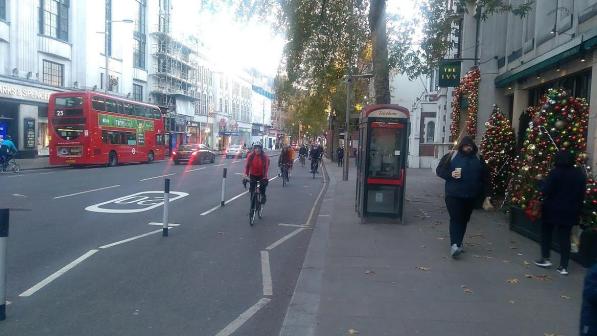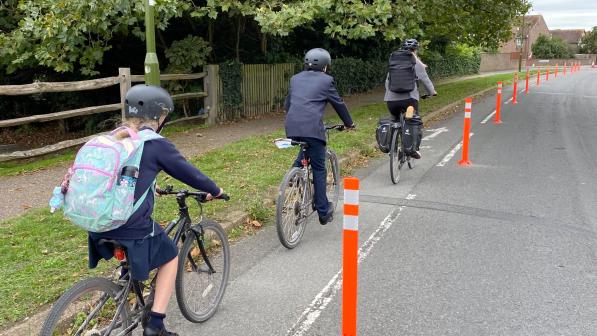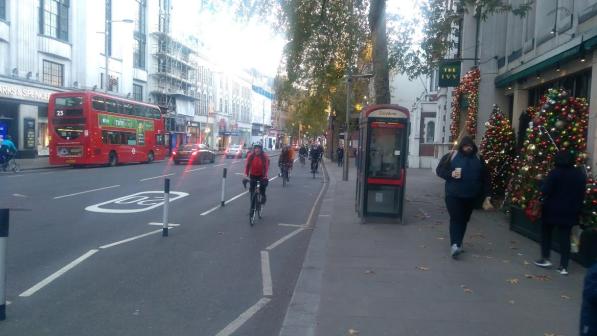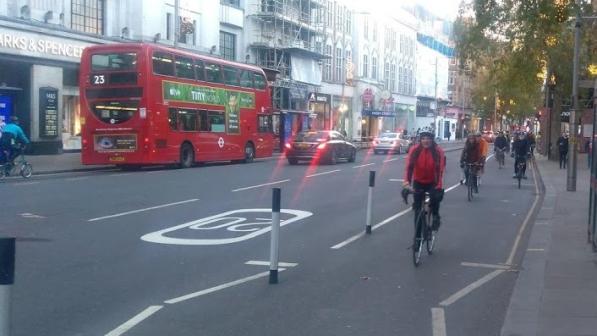Kensington cycle lane case goes to trial

The case will now proceed to trial unless the ostriches at RKBC remove their heads from the sand, talk to BetterStreets4KC and, perish the thought, actually listen.
The case will be heard
As I wrote on Monday, BetterStreets4KC had unfortunately overlooked the requirement to pay a court fee several months ago, which led to their case being automatically struck out under the court rules. When they realised, they apologised and tried to pay the fee but were unable to because the case was deemed closed, so they applied to reinstate the case.
RBKC opposed reinstatement, so matters were effectively on hold until yesterday, when, noting the wider public interest in this case, Judge Robert Palmer QC granted BetterStreets4KC’s application, who will now get their final day in court.
For more detailed accounts of RKBC’s opposition to a safe cycle route on Kensington Hight Street and the arguments BetterStreets4KC are presenting, take a look at their website and my colleague Roger Geffen’s article from last October. To summarise, RBKC removed the protected cycle lane from the High Street in December 2020 after just seven weeks, before it was fully installed.
BetterStreets4KC threatened legal action, so RBKC reviewed its decision and reached the same conclusion. BetterStreets4KC issued a judicial review challenging RBKC’s decision not to reinstate the lane. One element of their claim is that RKBC’s decision was irrational, given that the limited data RBKC collected indicated that it the cycle lane been beneficial, so the refusal to consider reinstatement ignored the available evidence.
What happens with the cycle lane on Kensington High Street is a matter of wider public interest
– Judge Palmer QC, who is reinstating the case brought against the Royal Borough of Kensington and Chelsea
Wider public interest
Whenever RBKC comments on Kensington High Street it sounds as though they believe only people who have businesses on the High Street, live on it or live near to it might be affected and so only they should have a say.
Of course, those views need to be heard but roads and transport networks don’t just exist for the benefit of those who live or work on or alongside them. They’re part of a network joining people and places, through which people from both inside and outside the borough pass – a point that RKBC never seem to grasp.
Hopefully the judge’s comments yesterday about the significance of this case beyond the borough itself, particularly for neighbouring boroughs, will nudge RBKC to reflect on their broader network responsibilities and management duties and not just pander to vocal objectors without an alternative plan.
BetterStreets4KC now have a fantastic legal team involved to support them but, even at discounted rates, cases like this are complex, time-consuming and costly. Cycling UK’s Cyclists’ Defence Fund is there to help fight significant cases that affect cycling or cyclists, or might enable more people to cycle. We’ve been delighted to support BetterStreets4KC in this case, including a £2500 contribution to their costs, but they still need to raise further funds in advance of the final hearing. You can donate via their CrowdJustice page.
This case matters
Judge Palmer QC said this case had wider public interest; I’d echo that but put it slightly differently.
This case matters for people in Kensington, like the volunteers for BetterStreets4KC who have taken on Goliath, and it matters for people in West London who travel through the borough.
But it also matters beyond London, because when councils ignore government guidance on re-allocating road space to people walking and cycling or make irrational decisions to oppose, or remove, active travel schemes it sends a message: a message that enabling active travel, re-allocating road space and making our roads and streets safer for all are not pick-and-mix options that can be ignored whenever it’s difficult or there are any local objections.
They shouldn’t be – they can’t be – and that’s why Cycling UK is supporting these fantastic volunteers and this case: because this case matters.




